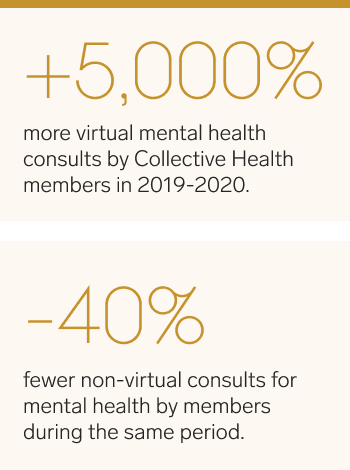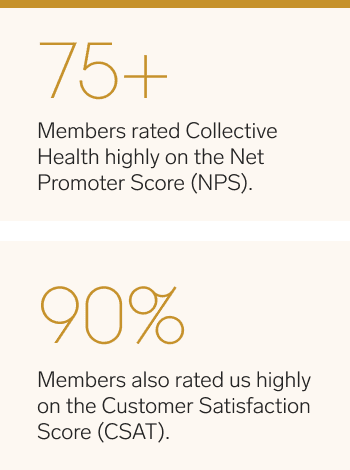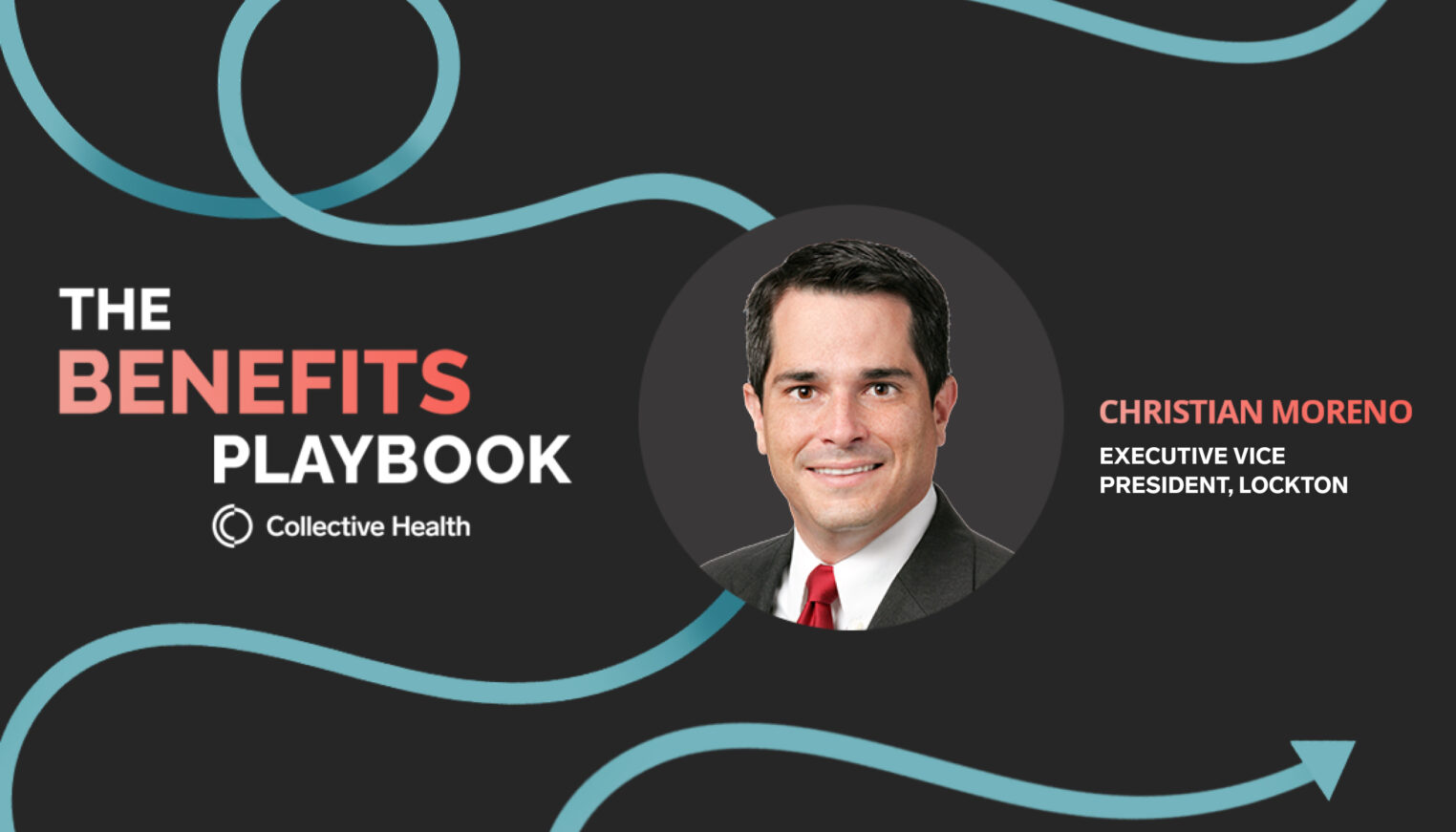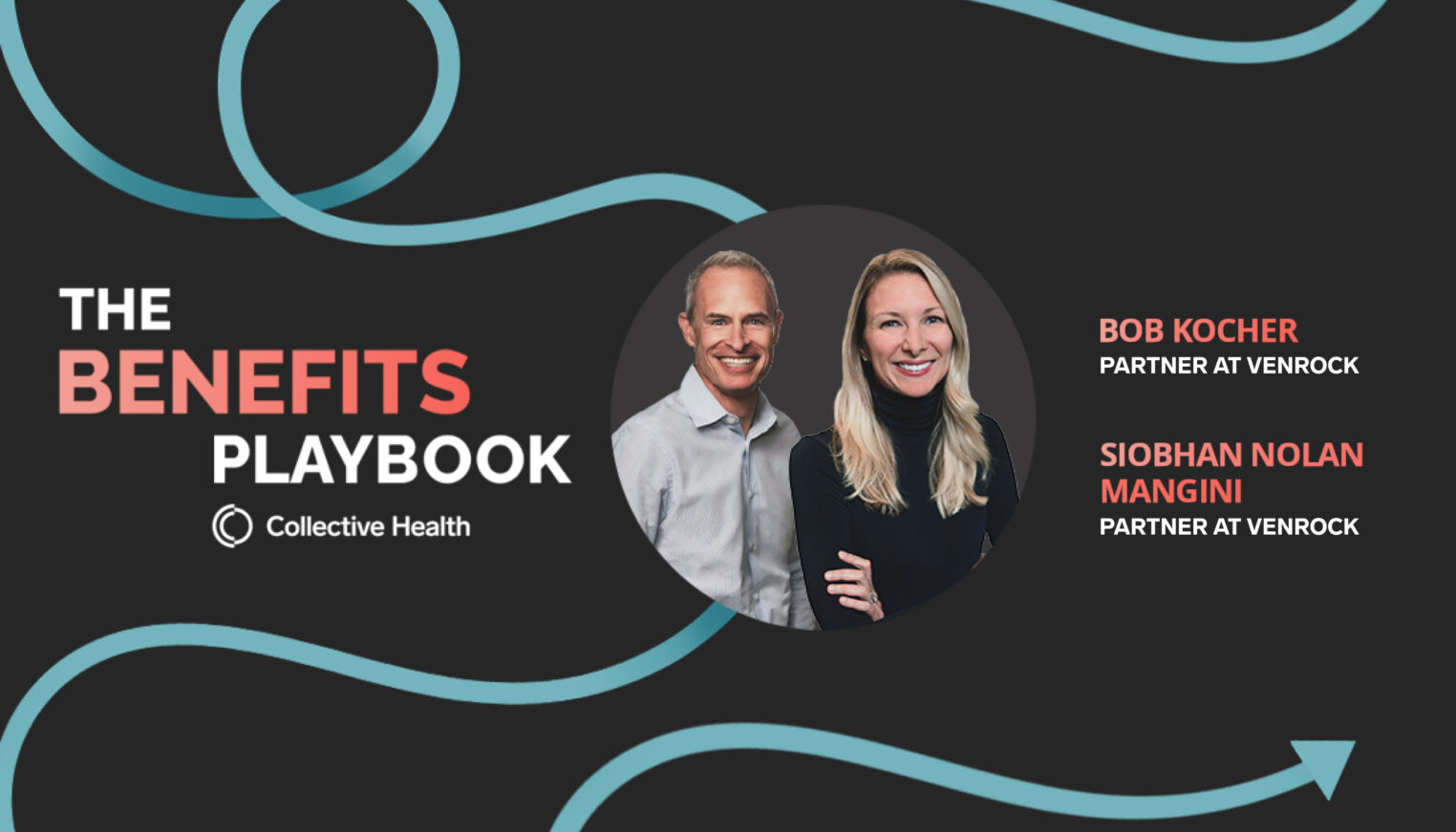By Sarah Petersen, RN, MSN, MBA, CCE, ACM, NEA – Director of Clinical Strategy at Collective Health.
After two years of sheltering in place, the dramatic shift to remote working and social distancing have taken a toll on the mental health of employee populations. Sarah Petersen, Director of Clinical Strategy at Collective Health, explains what you need to consider now.
Since 2019, the world has been dealing with the effects of a major pandemic that took a toll on all of us—economically, physically, and certainly mentally. The pandemic correlated with a mental health crisis that included increased rates of depression, anxiety, and stress.
As a nurse of 19 years, working in varied environments, from the cardiac ICU frontlines to care management, I feel passionately about the importance of holistic care, or understanding how a person’s mental health and environmental factors impact their overall physical health. It’s one reason I decided to come to Collective Health, where we consider social determinants of health and life outside the clinical setting when supporting members.
COVID-19 drove up mental health claims
At Collective Health, we’ve been working hand-in-hand with employers to adapt to and navigate the unprecedented crisis prompted by the pandemic. As the months (and years!) progressed, we noticed stark changes in demand for mental health support during this period.

Our book of business data shows an increase in mental health claims over the last two years. From 2019 to 2020, we saw over a 5,000% increase in virtual mental health visits, and roughly a 40% decrease in non-virtual visits for mental health. From 2020–2021 we saw a 30% increase in virtual mental health visits while in-person visits remained the same.
Anecdotally, we have many more members requesting access and reporting mental health challenges across our book of business. Looking at this data, we can deduce that mental health support has been and will continue to be a crucial investment for employers, especially through virtual formats.
It is critical for employers to consider the services they offer to preserve, protect and address the mental health care needs of their employees. From my hands-on clinical care perspective, I have seen the value of holistic care management, and getting employees the care they need when they need it.
Poor mental health takes a toll on physical health
Mental health is equally important to and also a key component of our physical health. For example, depression increases the risk for many types of physical health problems, particularly long-lasting conditions like diabetes, heart disease, and stroke. Similarly, the presence of chronic conditions can increase the risk for mental illness.
“Mental health is like other parts of our health care needs. When our mental health is suffering, it needs attention. If you sprained your ankle, it can be difficult to work, focus on your family or other responsibilities. There isn’t any stigma about getting your ankle treated by a medical professional so that you can get back to your life. We have all gone through a lot living through a pandemic and that impacts our mental health. It takes strength to acknowledge that something doesn’t feel right and ask for help. Seeking professional assistance for evaluation and treatment is crucial to living and enjoying our lives.”
—Laura Pullen, Social Worker at Collective Health
COVID has also created situations that can exacerbate mental health issues, such as increased periods of isolation and loneliness. With the tightening of restrictions and overwhelmed health systems, many people were forced to delay or put off important healthcare visits. This contributed to an increase in poorly-managed conditions and undiagnosed conditions that, when left untreated, can result in self medication and unhealthy habits.
Collective Health helps employers deliver holistic support
Part of the reason I was so drawn to Collective Health was because the organization and its approach understands the link between mental health and physical health— believing the two to be intrinsically connected. We have built our entire care management model, called Care Navigation, to address both simultaneously.
Our Care Navigation program is a “complex” care management program. We aim to identify high-risk and rising-risk members early in their care journey, and help them navigate medical and psychosocial needs with their providers.
We are not a traditional nurse-led model. We are a true interdisciplinary team of registered nurses, social workers, pharmacists, dieticians and care coordinators that allows members to work with any one of our clinicians or all of them if needed. Every member that uses care management is assessed for depression, regardless of condition, and for social determinants so we can create a holistic plan to help meet members needs.
Find out more
Delayed care: pandemic-related care avoidance worsens mental health
During the pandemic, many US adults avoided or delayed getting care due to concerns over COVID-19. This is a serious concern for clinical teams because physical health problems can also take a toll on mental health.
Consider Trista*, a Collective Health member in the Care Navigation program who has been putting off getting medical attention. Having struggled with her weight for her entire life, in 2019 she finally met with physicians about the best course of action she could take to avoid diabetes and reduce the stress she was putting on her joints.
Seeking professional assistance for evaluation and treatment is crucial to living and enjoying our lives.
Trista’s specialist suggested she was a good candidate for bariatric surgery which required a year of preparation, diet, and education prior to the procedure. After a year of taking all the necessary steps, Trista was looking forward to achieving better health. However, Trista’s surgery was delayed twice due to the more limited capacity of the hospital, which was overwhelmed with COVID patients.
Trista became progressively more unsure whether the surgery would actually happen, fearing all her work over the last year would be undone. This uncertainty greatly impacted Trista’s mental health, leading to depression and anxiety about her wellbeing and her future.
Working with members to address delayed care
Member Advocates create memorable member experiences | Collective Health
Meet Collective Health's Member Advocates, a team of highly-trained, compassionate experts in your health benefits.
Care Navigation was available as part of Trista’s benefit package so Trista had one point of contact, but many points of support. Her care manager was a registered nurse who connected her with a mental health resource to work through her feelings of depression, and disappointment, keeping Trista on track with her diet and preparation requirements for the surgery.
The nurse also worked directly with the provider to determine that a hospital nearby was accepting surgical patients, that the provider had hospital privileges and was in network. The surgery was able to take place. The care manager continued to follow Trista on the many needs she had after surgery as well.
By reaching out to Trista in a time of need, Collective Health’s clinical experts were able to help her get back on track with her health care needs, while also connecting her with additional resources along the way, so Trista can spend more time focusing on getting healthy than the stress of it all.
Addressing isolation and loneliness in employee populations
If we consider the increased loneliness and isolation of the average employee, it’s easy to realize the drastic changes COVID-19 caused. Thousands, perhaps millions, of employees moved from working in offices where they had social connections, shared meals, and in-person support to working alone at their kitchen counters, in home offices and basements.
While Zoom and other modalities provide a way for work to continue, employees report feeling isolated. When it comes to life outside of work, most regular family celebrations or gatherings with friends were canceled. The results can be catastrophic. According to one study loneliness or social isolation can lead to as much as a 32% increased likelihood of mortality.
Take Janeen* for example, a 40-year-old single mother with three kids between the ages of 9 and 15. During the pandemic, Janeen missed being able to connect with her family and friends. Her work was moved remote, which was, in her words, both a blessing and a curse. It was a blessing because the school her children attended had also shifted to online education at home, and she could be there to support them.
However, it was also a curse, because her main social support network came from the friends she had made and connected with at the office. As time progressed, Janeen began to feel very isolated and anxious about balancing working full-time and ensuring her children were engaged in their school work. Her feelings of isolation and loneliness grew and she found herself self medicating with alcohol after the kids went to sleep. She began to be worried about how she was feeling so she reached out to a care manager at Collective Health.
Working with members to address loneliness and isolation
Because Janeen is a Collective Health member, her care manager, a licensed social worker, was able to connect her to a virtual mental health care provider and eventually in-person care.

Janeen was also introduced to a support group and a community group helping to provide assistance with childcare options, as well as educational resources to help her manage the additional stress.
These interventions had a myriad of beneficial outcomes. Janeen reported that the social worker kept her from becoming dependent on alcohol and helped her develop healthy coping mechanisms, which allowed her to be more productive at work and more engaged with her kids.
She also used the advice provided by the social worker on how to connect with friends and family virtually in a meaningful way. She found virtual therapy to be helpful in getting at the root of some unaddressed trauma she had experienced early in her life.
Collective Health’s Care Navigation program aims to provide a holistic approach to members’ health. By connecting directly with members who are struggling, this team focuses on the many potential obstacles in a member’s life, rather than just their main diagnosis.
Keep mental health top of mind in 2023
COVID has taught us many things, perhaps, one of the most important is how to better identify, address, and understand mental health and the importance of recognizing it as part of holistic care. Employers have a powerful opportunity to support their employees by providing tools and benefits that support mental health.
At Collective Health, we understand that health is about far more than just blood tests and eating kale. In our mission to help America’s employers deliver great health benefits, we developed a holistic care model that takes into account the non-medical factors impacting members and coordinates a transdisciplinary team of clinical experts to empower members on their health journey. If you think your employees could benefit from the same level of attention and care, book a demo and learn more about our services.
*Member details including names and specific health conditions, have been altered to protect their privacy.



